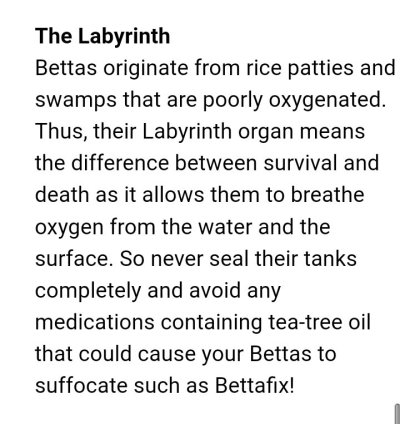So I recently tranferred my fish, Zeke, into a larger tank because I thought he might be feeling bored with his old surroundings in a smaller 3.5 gallon tank. Before then, he was spending a lot of time laying on the bottom of the tank, and not visibly eating food (tbough I had seen him flit up to get some a couple times). I suppose I should start with the mistakes I know I've made.
>I think I've been overfeeding him. I've been putting in some extra food in the worries that he might not be able to find the pinches I've been giving him. I think that's contributed to the algae problem in the last tank.
>I believe that even with the wave break on the filter in his new tank, the flow might have still been too strong. I just replaced it with an adjustable flow filter last night to see if there were any improvements, and it doesn't look like it.
>I rinsed the decorations in the new tank, but I neglected to rinse the substrate.
>I definitely took too long to ask about this. His condition hasn't deteriorated any further, and I see him upright on the bottom of the tank now and then, but this could have been something much more dangerous and I dragged my feet on it.
I'm not sure if it's necessarily an issue with the new tank though. His condition hasn't really seemed to deteriorate any further. It just hasn't improved.
I looked up potential diseases he may have, but I couldn't find anything that exactly relates to what I see in him. His scales aren't protuding, I don't see any visible bloating...I am pretty sure he was tailbiting before (which is why I aimed to improve his living conditions) - and I bought some BettaFix, which is supposed to help with fin and skin health. But I'm thinking about whether I should go out and buy some BettaZing, which I understand is meant to treat bacterial infections?
>I think I've been overfeeding him. I've been putting in some extra food in the worries that he might not be able to find the pinches I've been giving him. I think that's contributed to the algae problem in the last tank.
>I believe that even with the wave break on the filter in his new tank, the flow might have still been too strong. I just replaced it with an adjustable flow filter last night to see if there were any improvements, and it doesn't look like it.
>I rinsed the decorations in the new tank, but I neglected to rinse the substrate.
>I definitely took too long to ask about this. His condition hasn't deteriorated any further, and I see him upright on the bottom of the tank now and then, but this could have been something much more dangerous and I dragged my feet on it.
I'm not sure if it's necessarily an issue with the new tank though. His condition hasn't really seemed to deteriorate any further. It just hasn't improved.
I looked up potential diseases he may have, but I couldn't find anything that exactly relates to what I see in him. His scales aren't protuding, I don't see any visible bloating...I am pretty sure he was tailbiting before (which is why I aimed to improve his living conditions) - and I bought some BettaFix, which is supposed to help with fin and skin health. But I'm thinking about whether I should go out and buy some BettaZing, which I understand is meant to treat bacterial infections?

